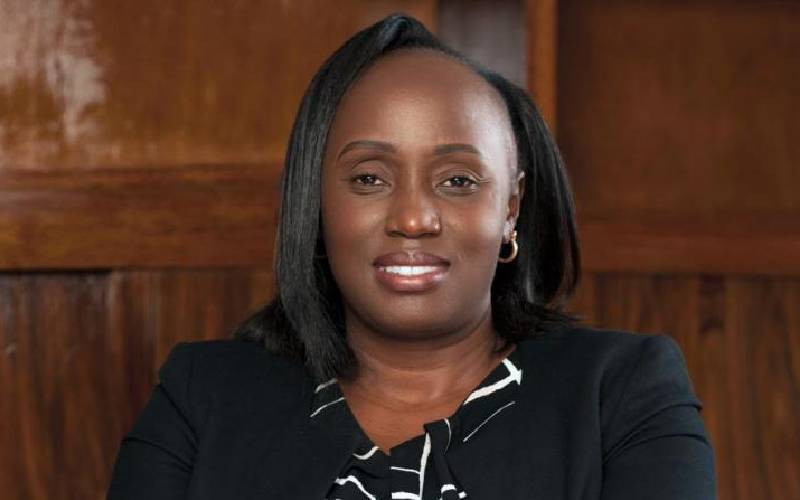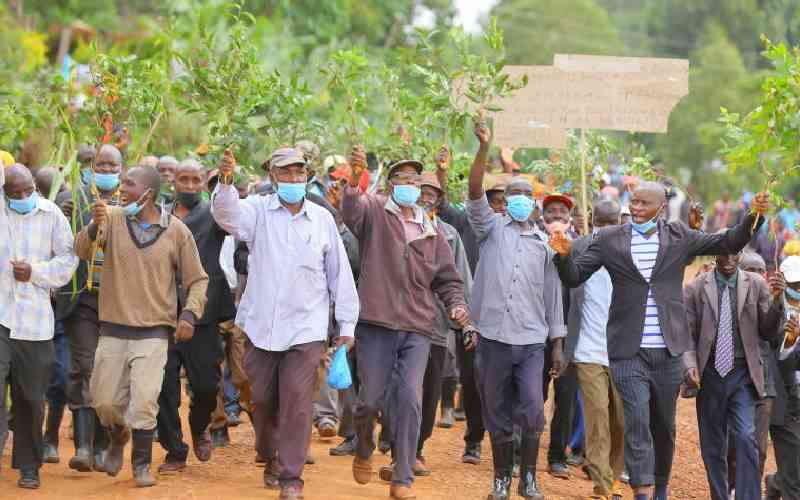By Stephen Makabila
KENYA: On February 28, 2008, Mwai Kibaki (President) and Raila Odinga (Prime Minister), signed a deal committing themselves to a ‘political marriage’ under the National Accord, following the 2007/2008 post-election violence.
The principals then formed the Grand Coalition Government that ushered in a new constitutional dispensation in 2010.
Commenting on the union that salvaged the country in an interview with the Geneva-based mediation organisation Centre For Humanitarian Dialogue titled The Prisoner of Peace, lead negotiator Kofi Annan said: “Their (Kibaki and Raila’s) body language was telling. It was stiff, but this remained unchanged because they knew each other so well. They had too much history.”
In his first public revelation of what transpired at the closed-door meeting at Harambee House in Nairobi during negotiations for power-sharing between the then two political rivals, Annan concedes that differences of opinion and “long-standing history” between Kibaki and Raila nearly derailed his peace mission.
However, in the five years they have been at the helm of the Grand Coalition Government, the two had unending challenges but navigated with a sense of nationalism to move the country forward.
Second republic
“They had variances at some stages, but they stand out above the rest for giving Kenyans the second republic (new Constitution), a landmark achievement in all respects,” says Joseph Misoi, former chairman of ODM’s National Elections Board.
Misoi says though the two had differences, the positives outweigh the negatives.
“Their general way of doing things complimented each other. While Raila was outgoing, Kibaki was somehow laid back. This way, direct confrontation became limited,” points out Mr Masibo Lumala, a Communication lecturer at Moi University.
The five years were a total opposite of their earlier marriage in Narc that ended Kanu’s more than four decades in power in 2002, only for the two to fall out in the 2005 constitutional referendum. Kibaki then formed a government of national unity, while Raila turned his Orange brigade into a formidable political force ahead of the 2007 General Election.
“Differences are normal in any working relationship. Between them, they at times overcame some of the greatest challenges people thought could lead to collapse of the grand coalition,” points out Munene Macharia of the United States International University-Kenya. Misoi and Macharia say the greatest achievement for the principals was when they jointly led Kenyans into achieving the new Constitution in 2010, and its implementation, which is under way.
And as fate would have it, Kibaki is set to retire while Raila will not also be at the nerve-centre of running the country, having conceded to the Supreme Court ruling last Saturday and wished President-elect Uhuru Kenyatta well.
While there were trying moments in early stages of the grand coalition when ‘protocol’ wars between the PM’s office and that of the Head of Civil Service, as well as that of the Vice-President Kalonzo Musyoka, there were equally moments of smooth sailing.
Towards the end of 2009, working relations between the principals reached an all-time high since appending their signatures on the power sharing agreement.
New friendship
In July 2009, Kibaki capped his three-day tour of Nyanza with a symbolic meal at Raila’s rural home in what was billed as the dawn of new friendship between the two.
The President also laid a wreath at the mausoleum of Raila’s father, Jaramogi Oginga Odinga, in Bondo.
In August 2009, Kibaki and Raila united to welcome US Secretary of State Hillary Clinton at the African Growth and Opportunity Act conference in Nairobi.
While Raila used the occasion to urge the West to open up trade, Kibaki said the decision by the US Congress to extend Agoa preferential trade programme by three years would expand exports from Kenya and the whole of Africa to the US markets besides promoting a high-level dialogue on trade and investment-related issues.
Come 2010 and the two joined forces to lead the country into passing the new Constitution.
Terror attacks
In years when the country faced a series of terrorist attacks, the two principals also united in giving Kenyans hope, with Raila always being among the first on attack scenes to reassure the country on the Government’s commitment to fight terrorism.
And when finally the country declared war on Al Shabaab, with the Kenya Defence Forces crossing over to crackdown on the militants, the principals had an agreement on the momentous decision.
National holidays were also occasions the two joined hands, putting politics aside to demonstrate that they were leading a united country amid political and socio-economic challenges.
At times of national tragedy, differences also fell apart, as was demonstrated during the demise of former Internal Security Minister George Saitoti and his Assistant Orwa Ojode last year and earlier on the death of Cabinet ministers Kipkalya Kones, John Michuki, and Njenga Karume.
But there were equally issues of national importance the two had differences of opinion on, which at times required intervention of other leading national figures.
Among one of the major decisions immediate former National Assembly Speaker Kenneth Marende is remembered for is now the famous ‘Solomonic ruling’ in April 2009 that deflated a major tussle between Kibaki and Raila on who should be the leader of Government business in the House.
On November 2011, while ruling on whether Kibaki and Raila had consulted on appointment of Chief Justice, Attorney General and the Director of Public Prosecution, Marende said, “After careful consideration of this matter, doing the best I can, weighing one thing against the other, it is my considered opinion that the required standard of consultation is not so high as to mean concurrence or agreement and thereby become a recipe for deadlocks and brinkmanship.”
Kibaki and Raila also had differences on resettlement of the Mau evictees, an issue that died down gradually after being sorted out by Government.
Political analysts opine that for the common Kenyan craving for peace, however, the good performed by the principals in the interest of the country outweighs some of their differences, where in most cases wisdom prevailed.
 The Standard Group Plc is a multi-media organization with investments in media
platforms spanning newspaper print operations, television, radio broadcasting,
digital and online services. The Standard Group is recognized as a leading
multi-media house in Kenya with a key influence in matters of national and
international interest.
The Standard Group Plc is a multi-media organization with investments in media
platforms spanning newspaper print operations, television, radio broadcasting,
digital and online services. The Standard Group is recognized as a leading
multi-media house in Kenya with a key influence in matters of national and
international interest.
 The Standard Group Plc is a multi-media organization with investments in media
platforms spanning newspaper print operations, television, radio broadcasting,
digital and online services. The Standard Group is recognized as a leading
multi-media house in Kenya with a key influence in matters of national and
international interest.
The Standard Group Plc is a multi-media organization with investments in media
platforms spanning newspaper print operations, television, radio broadcasting,
digital and online services. The Standard Group is recognized as a leading
multi-media house in Kenya with a key influence in matters of national and
international interest.









